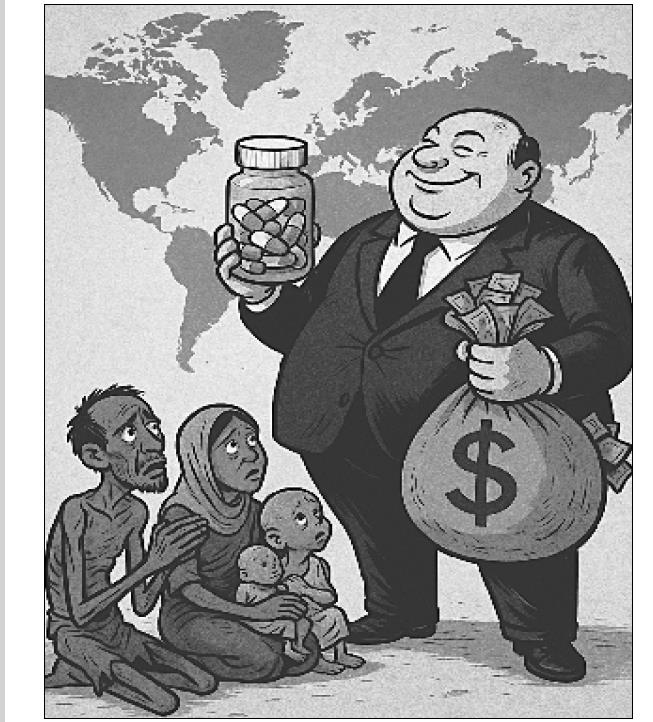Big pharma`s sole focus is on profits
2025-07-14
IT is a cruel irony of our times that while medical science continues to soar to extraordinary heights, offeringhope against once incurable diseases, the very markets that deliver these miracles have become compromised by greed, weak regulation and systemic negligence. Recent investigative reports have unearthed shocking realities, like chemotherapy drugs not having even the basic quality and efficacy being shipped to over a hundred countries. In some African countries, tests on common cancer drugs revealed only half the expected dosage, rendering treatment not just ineffective, but potentially lethal. These are not mere statistical glitches; they represent a systemic failure where patients are handed vials of false hope.
The culpability does not lie with one nation or manufacturer alone. It is a global malaise, deeply rooted in the industry`s profit-driven ethos. Generic drug manufacturers, often hailed as saviours for making life-saving drugs affordable, have found themselves ensnared in a race to the bottom. Fierce competition forces them to slash costs, often at the expense of good manufacturing practices.
Reports of companies destroying or doctoring quality controlrecords are disturbing. Still, many such companies continue to ship drugs, profiting off a system that fails to enforce accountability.
What is even more frustrating is the global regulatory vacuum that enables such malpractices to thrive. Nearly 70 per cent of countries reportedly lack robust systems to test drug quality. In nations like Nepal, barely a few dozen medicines are tested annually.
The disparity is stark: while patients in the West receive higher-quality drugs due to stricter oversight, those in lowand middle-income countries (LMICs), are leftexposed to dangerous substitutes. These failures are not abstract bureaucratic lapses, they are directly responsible for suffering, complications and deaths.
Moreover, the infiltration of counterfeit and substandard drugs into legitimate supply chains has turned this into a massive humanitarian crisis. In Lebanon and some other Asian and African countries, anti-cancer medicines laced with toxins or inert powders have slipped into hospitals and pharmacies.
What is perhaps most infuriating is the indifference of those who can reform the system. While multinational pharmaceutical firms rake in billions, relatively little is invested in bolstering global drug monitoring networks. Regulatory collaboration across borders remains weak, and attempts at accountability are often bogged down by legal hurdles and political inertia.
Governments in developing countries, often too dependent on foreign aid or trade deals, hesitate to enforce standards that might upset large suppliers. As a result, the poor continue to pay, sometimes with their lives, for the complacency of global health governance.
We are facing a paradox: the science of medicine is evolving with remarkable speed, but the systems meant to deliver that science safely and equitably are alarmingly broken. What good is a breakthrough cancer drug if its diluted version reaches patients in Nairobi, Dhaka or Karachi? The global pharmaceutical market has drifted far from its primary mission. It no longer heals; it deceives, gambles and, in some cases, kills. Health is a universal right, and it should not be left to the whims of market forces and broken systems.
Majid Burfat Karachi




